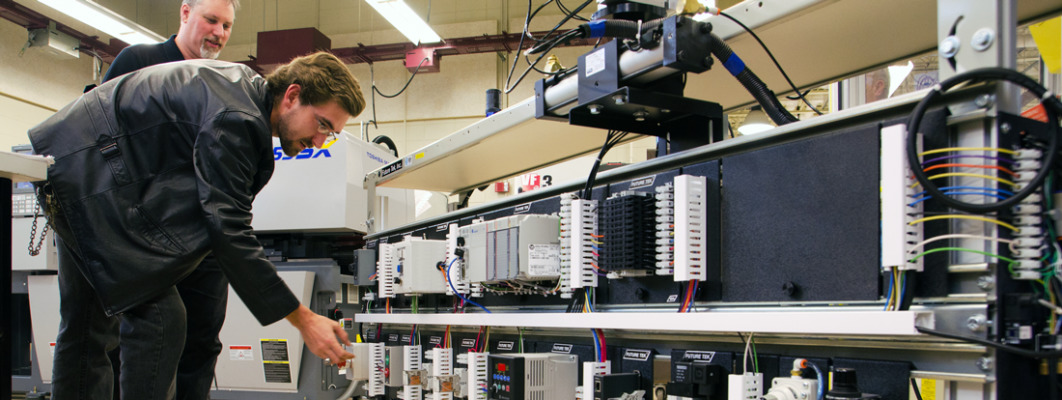

How do you create a robust, technology-rich infrastructure in every community to support adult learning, particularly for those with the lowest skills and the greatest barriers? In Denver this past spring, Digital Promise brought together teachers, researchers, entrepreneurs, government officials, and other experts in adult education to explore how recent innovations in technology might improve learning and career advancement opportunities for under-skilled, underserved adults.
Learning applications designed specifically for the low-skilled adult learner are part of the solution, of course, but as we learned from our work in the field, adult education practitioners are also looking for digital tools that eliminate the non-academic barriers that students face in addition to any academic challenges they come across. These tools include data management, learner assessment (and self-assessment), apps that help with scheduling, transportation, and other kinds of support.
Over the course of the day, participants identified challenges to designing a technology-powered learning ecosystem for this population. They also envisioned what this ecosystem might look like, and recommended actionable steps to make that vision into a reality. We look forward in the months ahead to exploring opportunities to prototype and scale up new digital learning tools based on those recommendations.
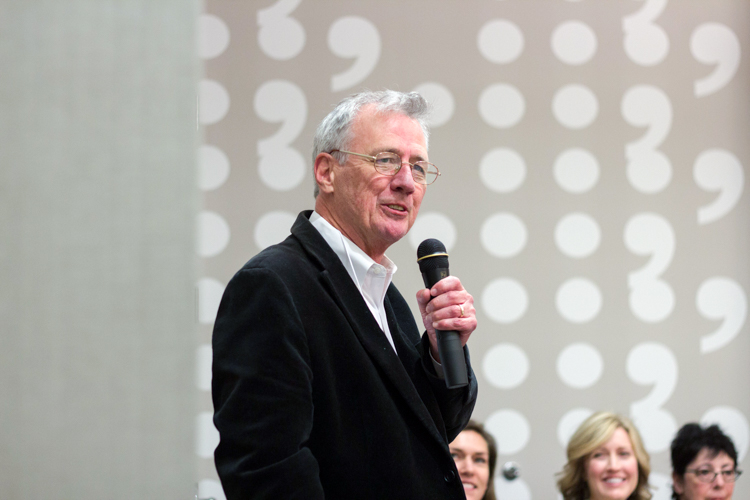
Over the last year, Digital Promise has been studying seven communities across the country (which we call “Beacon” sites) that are committed to expanding adult learning opportunities through the use of digital learning tools. In doing so, we are chronicling what it takes to develop a “digital ready” adult learning community, while identifying critical challenges and topics for further research or evaluation.
Our Beacon network is also emerging as a community of practice among Beacon site leaders to share knowledge and lessons about the use of technology in adult education, and a potential test-bed for rapid prototyping of innovative solutions.
Though they differ from each other in how they operate, each Beacon site’s advocacy and devotion to supporting their students unifies their collective work and leads them to seek out more/better technology.
Find out more on the Beacons and their site leaders:
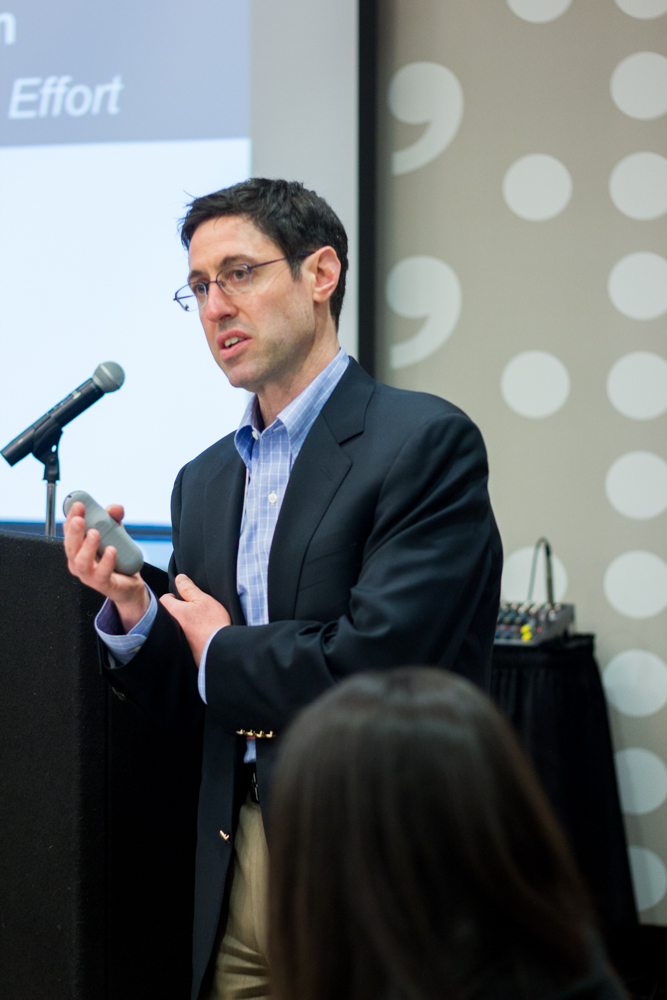
In fall 2014, Tyton Partners, with support from the Joyce Foundation, conducted a national survey of more than 1,000 adult education program administrators and practitioners to determine their interest in, aptitude for, and current use of technology-based instructional resources. Adam Newman, Founder and Managing Partner of Tyton Partners, reviewed their findings at our convening.
Their key takeaway: the vast majority of adult education program administrators and practitioners are enthusiastic about the potential for technology to support instruction.
Other highlights
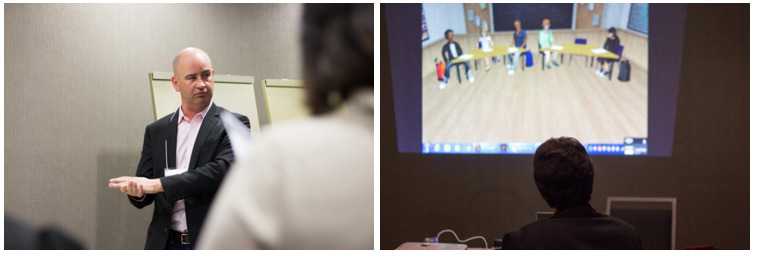
Digital Promise works to capture the stories of adult learners to help developers better understand these learners’ needs. At the same time, representatives from adult education (including adult learners) are sometimes unaware of the latest technologies being deployed or potentially available or adaptable for low-skilled adult learners.
For this reason, our meeting included presentations from a cross-section of developers and researchers showcasing new technologies, including: an app that adult learners can use to scan text by cell phone and have it read to them; cell phone-based curriculum; an avatar game; a classroom simulator; and an app that helps case managers and employment specialists find opportunities for under-credentialed students.
Learn more from our presenters:
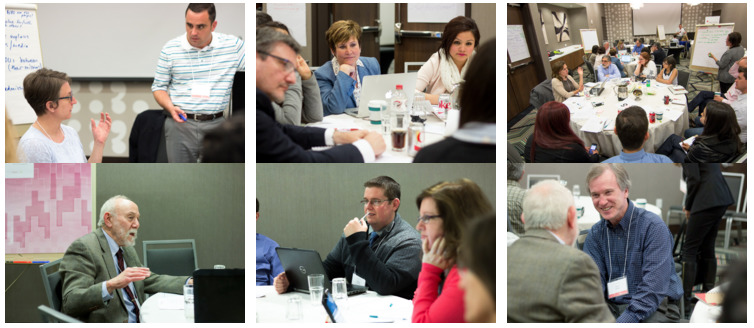
Having set the stage with thought-provoking presentations on compelling community partnerships, persuasive market research, and groundbreaking technology, our participants broke into small groups to discuss the implications for the future of adult learning.
Two of the “big ideas” that came out of those discussions:
RT @DigitalPromise: "We need to know where and how adult students are using technology, and our delivery should match." #adulted15 #coabe15
— otan (@otan) April 21, 2015
Other groups looked at how technology can help more accurately and meaningfully measure what a learner knows, not only for the purpose of informing and improving instruction, but also so that learners can assess their own progress and demonstrate what they know.
One possible solution: micro-credentials. Because micro-credentials focus on mastery of a singular competency, they are more flexible and provide motivation based on small successes. An accumulation of a set number of micro-credentials might lead to a credential in algebra, for example.
In this context, micro-credentials would serve as benchmarks in pursuit of a larger goal, which may help motivate students as they progress. At the same time, micro-credentials could be shared with employers as a way to demonstrate competency in specific skill sets as they work toward major milestones (like a high school equivalency).
A final major takeaway was the continuing need to provide access to online learning opportunities. How do we provide students with the tools to get connected? How do we help students better understand why being connected is so vital to their (and their family’s) future?
Some of our participants took on the question of connectivity by thinking hard about workaround solutions. One solution is an expanded version of Cell-Ed, a California-based non-profit that enables ESL students to take courses by cell phone without a need for data plan. Students dial a phone number, listen to a pre-recorded lesson with accompanying text, and text back answers. Cell-Ed services (or similar services) could be expanded by incorporating regular visits from the developer to community centers, where users can have new lessons uploaded onto their phone through an app.
Final thoughts: Thanks for a great #adulted15! Now, let's take action to create #edtech solutions for adult learners– .@jeffcrtr .@kcator
— Digital Promise (@DigitalPromise) April 21, 2015

We want to hear from you!
Please take this 5-minute survey and help us serve you better.
